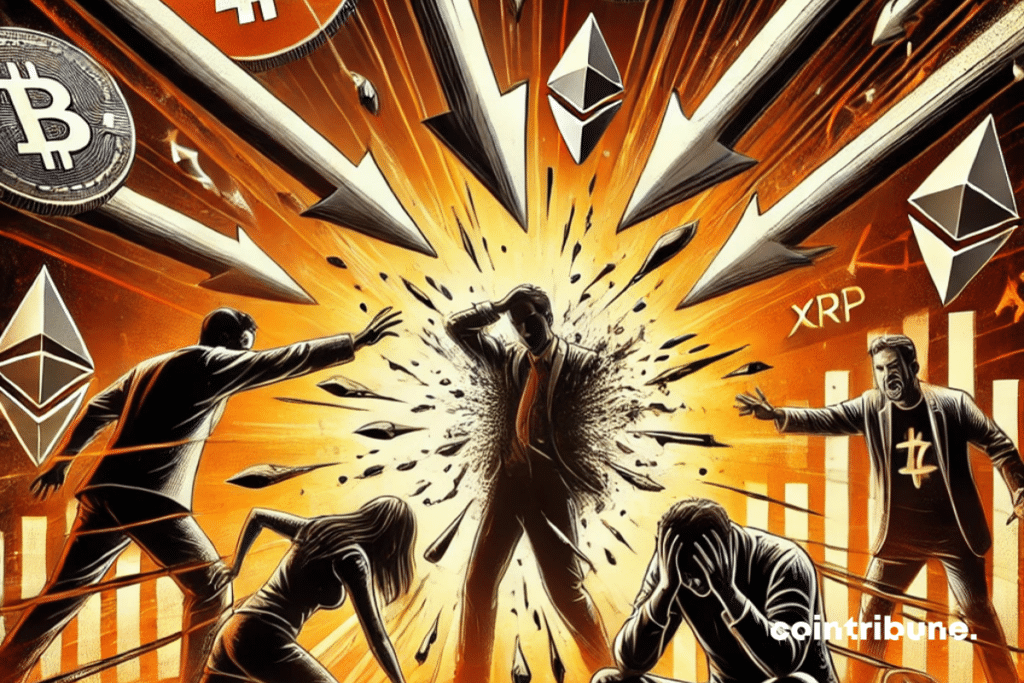7:05 ▪
4
Minimum read time up to ▪
The arm wrestling between the SEC and cryptocurrency companies seems to be endless. Today, Ripple's XRP is once again at the center of hostilities. Bitnomial, a Chicago-based cryptocurrency exchange, is accusing the SEC of stretching its jurisdiction too far by requiring increased compliance for XRP futures contracts. The incident has reignited tensions over XRP's status as a security, with the cryptocurrency sector beginning to worry about broader implications for all digital assets.


Bitnominal challenges SEC: Conflict of jurisdiction
Bitnomial recently sought permission to launch dollar-backed XRP futures contracts under the Commodity Futures Trading Commission (CFTC) regulations.
However, the initiative quickly attracted the attention of the SEC. The agency warned Bitnomial that offering such contracts without registration in accordance with the requirements could violate federal securities laws. Bitnomial disputes this position, claiming that the SEC is overstepping its rights by classifying crypto XRP as a security. However, Ripple emerged victorious.
Behind this conflict lies the issue of jurisdiction. According to Bitnomial, the CFTC will oversee futures contracts and the SEC will regulate securities.
By qualifying XRP as an “investment contract,” the SEC seeks to bring these futures under its control, a step toward more aggressive regulation of the sector as a whole.
For Bitnomial, this move by the SEC amounts to an attempt to take control of not just XRP, but potentially all digital assets.
In response, Bitnomial filed a complaint in hopes of obtaining a judicial declaration redefining the classification of these contracts.
If this exchange is successful, it could set a strong legal precedent not only for XRP, but for all other crypto assets that are likely to suffer the same fate. The case therefore takes on a symbolic dimension as a struggle for industry autonomy against increasingly intrusive regulation.
Cryptocurrency sector faces new uncertainties
This controversy is not limited to XRP. Indeed, the potential impact on the sector as a whole is significant.
If the SEC succeeds in recognizing XRP as a security in this context, it would pave the way for similar regulations to be introduced for other cryptocurrencies, a worrying prospect for investors and market participants. is.
Already, companies like Crypto.com have also filed lawsuits against the SEC, accusing it of an overbroad and baseless approach.
The influence of this incident is also reflected in the current atmosphere of the virtual currency market. Investors, concerned about repeated legal battles, are starting to lose confidence, and selling is accelerating.
Regulatory uncertainty raises questions about the robustness of crypto investments, leading to increased volatility. The destabilization of XRP spills over into other assets as investors worry about new attacks from the SEC on other projects.
For cryptocurrency supporters, these actions seem counterproductive. Instead of clarifying the rules, the SEC imposes pressure and ends up undermining industry trust. Influential figures in the field, such as the CEO of Bitnomial, believe that such decisions will negatively impact innovation and hinder the adoption of cryptocurrencies. For them, this is a battle they must fight not just for Bitnomial and Ripple, but for the entire cryptocurrency ecosystem. Meanwhile, China is collapsing.
Get the most out of your Cointribune experience with the “Read to Earn” program! Earn points every time you read an article and get access to exclusive benefits. Sign up now and get rewards.


The appeal of Bitcoin in 2017, creating important documents. This essay aims to revitalize Avance, which is the forefront of transactions and the center of virtual currency. Challenger aims for permanent research to revisit the son's ensemble and top quality research.
Disclaimer
The views, ideas and opinions expressed in this article are solely those of the author and should not be construed as investment advice. Please do your own research before making any investment decisions.

